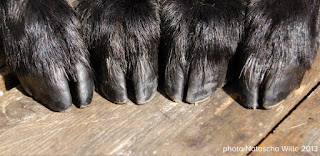COVID-19: Plea for a Halachic Edict Forbidding Minyan Participation
The point of this post in 10 seconds
By participating in minyanim at this time, COLLECTIVELY we are:
|
Over Shabbat, many of my friends and neighbors davened at home. But from my porch in Ramat Beit Shemesh, I saw men streaming to various minyanim. I could also see three shuls. One was closed, but two of them had minyanim. One of those had all the windows open, and I understand that they made efforts to daven with space between them. Separately, I saw a neighbor hosting a minyan in his garage. Granted this is a very limited sample size, but I think it's safe to say that a large number of minyanim were being held throughout town and across the country, some taking greater precautions than others.
Why is minyan a problem? When we have a minyan in shul, we're in an enclosed space with others, potentially up to 1-2 hours. Standing 2 meters apart is theoretically possible but sometimes hard to do, e.g., during the Torah reading. Also, it is nearly impossible to keep from touching things other people have touched—chairs, tables, siddurim, the sefer Torah, etc. Also, the virus can remain active on surfaces from the previous minyan.
Did any of the minyanim I saw from my balcony pass the virus around? We may never know. However, all the collective minyanim around the country, together, are without a doubt increasing contagion. What's more, even taking great precautions, even holding a minyan outdoors, gives the impression that it is okay—even obligatory—to go to minyan. Are we sure every minyan is going to be as "careful" as our own?
Participating in a minyan sends the message that a lockdown is not needed, and that our religious needs supersede the health and very lives of people in the wider society. It is putting a stumbling block before hundreds of thousands of devoted minyan-goers who will go if they see others going.
And what will be the collective result?
- Longer societal shutdown;
- Deeper economic and humanitarian crisis;
- Many more people sick and dying from the virus, including people providing essential services such as food and healthcare;
- People with other life-threatening traumas and illnesses who cannot get the medical care they need because the system is so overloaded.
וּבְפָרִשְׂכֶם כַּפֵּיכֶם אַעְלִים עֵינַי מִכֶּם גַּם כִּי־תַרְבּוּ תְפִלָּה אֵינֶנִּי שֹׁמֵעַ יְדֵיכֶם דָּמִים מָלֵאוּ׃
And when you lift up your hands (in prayer), I will turn My eyes away from you; Though you pray at length, I will not listen. Your hands are filled with blood." (Yesh. 1:15)Yeshayahu was describing a situation where people would ask for Divine aid while at the same time being callous to human suffering. In our case, we have a situation where it is the act of davening itself which is perpetuating human suffering, asking for Divine mercy while at that very moment failing to show mercy on others. Of course, I fully appreciate that many of the current minyan-goers are not acting with callousness or selfish motivation. Just the opposite—they see their gatherings as offering spiritual protection. They sincerely want to do what is right, which is part of what makes the phenomenon so intractable—and dangerous.
That is why I implore the religious community to enact a society-wide hora'at sha'ah (temporary halachic edict) which says that holding a minyan, or participating in a minyan, is prohibited, starting now. Anything short of that means that people will continue to feel pressure either to attend minyan in shul, or to be "creative" and try to put together ad-hoc minyanim, creating even more sakana (danger to life) where there does not need to be. That alone is all any halachic, religiously conscientious person should have to know.
There is no community that "dwells alone" at this time. We are all interconnected. Which means that collective, society-wide action limiting contact with one another is required. The religious/halachic community needs to take part in the lockdown and show an example of what it means to put the welfare of the klal (greater community) at the forefront, to endure some mild "discomfort" of disrupting usual practice in order to help prevent real—possibly catastrophic—suffering. It is time to show what it means to be arevim zeh lazeh, to truly look out for one another, our neighbors and friends, as well as people in distant cities we will never meet who are impacted by our actions.
Please take a moment to reflect and consider this. Every day counts.
Note: There are already numerous statements by halachic and medical authorities giving precisely this advice. But until this becomes a society-wide commitment, I am doing my part adding another voice to the mix.



Our community rabbis and some baal ha batim have been saying the same: That by NOT having minyanim, we are certainly saving lives! Yesh ha koach David. I agree and have rallied in our Los Angeles neighborhood as well - encountering resistance.
ReplyDeleteI find this blog post to be very thought-provoking.
ReplyDelete